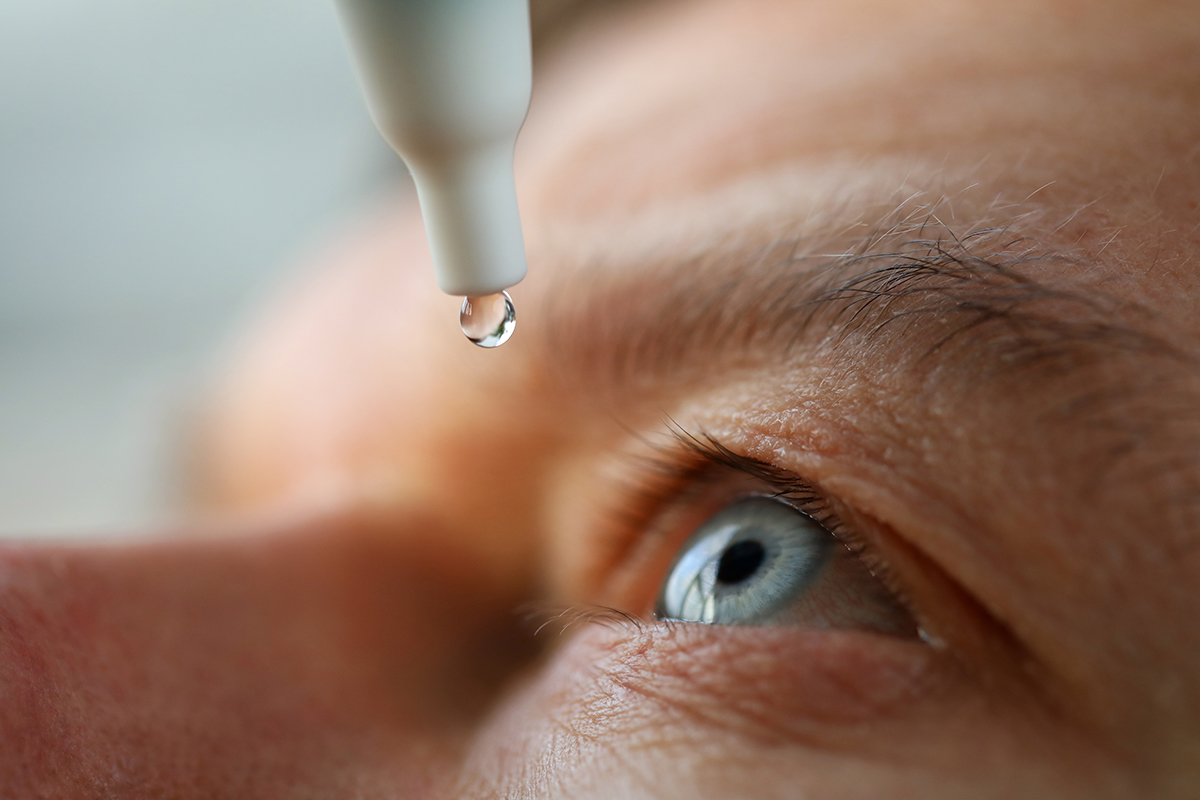
The primary goal of early glaucoma treatment is to prevent the disease from progressing and causing vision loss. Eye drops have been the first-line treatment for glaucoma since the 1990s, and prostaglandin is the most common eye drop medication. However, newer eye drop drugs are FDA-approved to lower intraocular pressure for glaucoma treatment. Unfortunately, these eye drops can fail to control glaucoma progression, and you may need advanced techniques or laser surgery to slow the disease.
Our ophthalmologists at Wiles Eye Center in Kansas City offer comprehensive glaucoma treatment customized to your needs. Some patients who respond well to eye drops may not tolerate the medication’s side effects or find them inconvenient, in which case other treatments are a better fit.
Selective Laser Trabeculoplasty for Glaucoma Control
Some ophthalmologists use selective laser trabeculoplasty (SLT) as a first-line treatment for glaucoma patients because it can provide meaningful improvement without the worry of remembering to use eye drops several times a day. This laser procedure is used for open-angle glaucoma. SLT uses low-level light from laser technology to increase fluid drainage in the natural drainage pathway between the iris and the white covering on the eye’s surface (sclera).
SLT is an attractive option for patients resistant to eye drops because a single laser procedure can effectively lower eye pressure for up to three years or longer. Some patients may still need glaucoma medications, while others enjoy lasting relief without secondary treatment. This glaucoma laser treatment does not damage the drainage canal in the eyes and can be repeated if the initial procedure doesn’t lower eye pressure.
SLT is performed on an outpatient basis, so you can go home to rest afterward. Our eye surgeon will administer special numbing eye drops to the eye’s surface and use a gel contact lens on the eye to focus the laser energy onto the drainage canals. Patients may see flashes of bright light, hear clicks and experience a tingling sensation during the procedure. However, most patients report little to no pain during SLT, which takes around five to 10 minutes.
Determining the Best Glaucoma Treatment Plan for Your Vision
It’s common for medications such as eye drops to lose effectiveness over time. Some patients need more potent doses or different types of eye drops. Our eye doctors will examine your ocular health and create a treatment plan to manage intraocular pressure and slow glaucoma progression. It often takes a combination approach to see the best results.
If you’re struggling with eye drops for glaucoma management, contact Wiles Eye Center to schedule a comprehensive eye exam and discuss your treatment options. Call our Kansas City, Missouri, office at (816) 455-2020 or our St. Joseph, Missouri office at (816) 279-7015, or fill out our online contact form.

Comments are closed here.